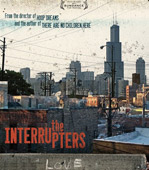Conflict resolution is the process of resolving a dispute or a conflict by meeting at least some of each side’s needs and addressing their interests. Conflict resolution sometimes requires both a power-based and an interest-based approach, such as the simultaneous pursuit of litigation (the use of legal power) and negotiation (attempts to reconcile each party’s interests). There are a number of powerful strategies for conflict resolution.
Knowing how to manage and resolve conflict is essential for having a productive work life, and it is important for community and family life as well. Dispute resolution, to use another common term, is a relatively new field, emerging after World War II. Scholars from the Program on Negotiation were leaders in establishing the field.
Strategies include maintaining open lines of communication, asking other parties to mediate, and keeping sight of your underlying interests. In addition, negotiators can try to resolve conflict by creating value out of conflict, in which you try to capitalize on shared interests; explore differences in preferences, priorities, and resources; capitalize on differences in forecasts and risk preferences; and address potential implementation problems up front.
These skills are useful in crisis negotiation situations and in handling cultural differences in negotiations, and can be invaluable when dealing with difficult people, helping you to “build a golden bridge” and listen to learn, in which you acknowledge the other person’s points before asking him or her to acknowledge yours.
Articles offer numerous examples of dispute resolution and explore various aspects of it, including international dispute resolution, how it can be useful in your personal life, skills needed to achieve it, and training that hones those skills.













